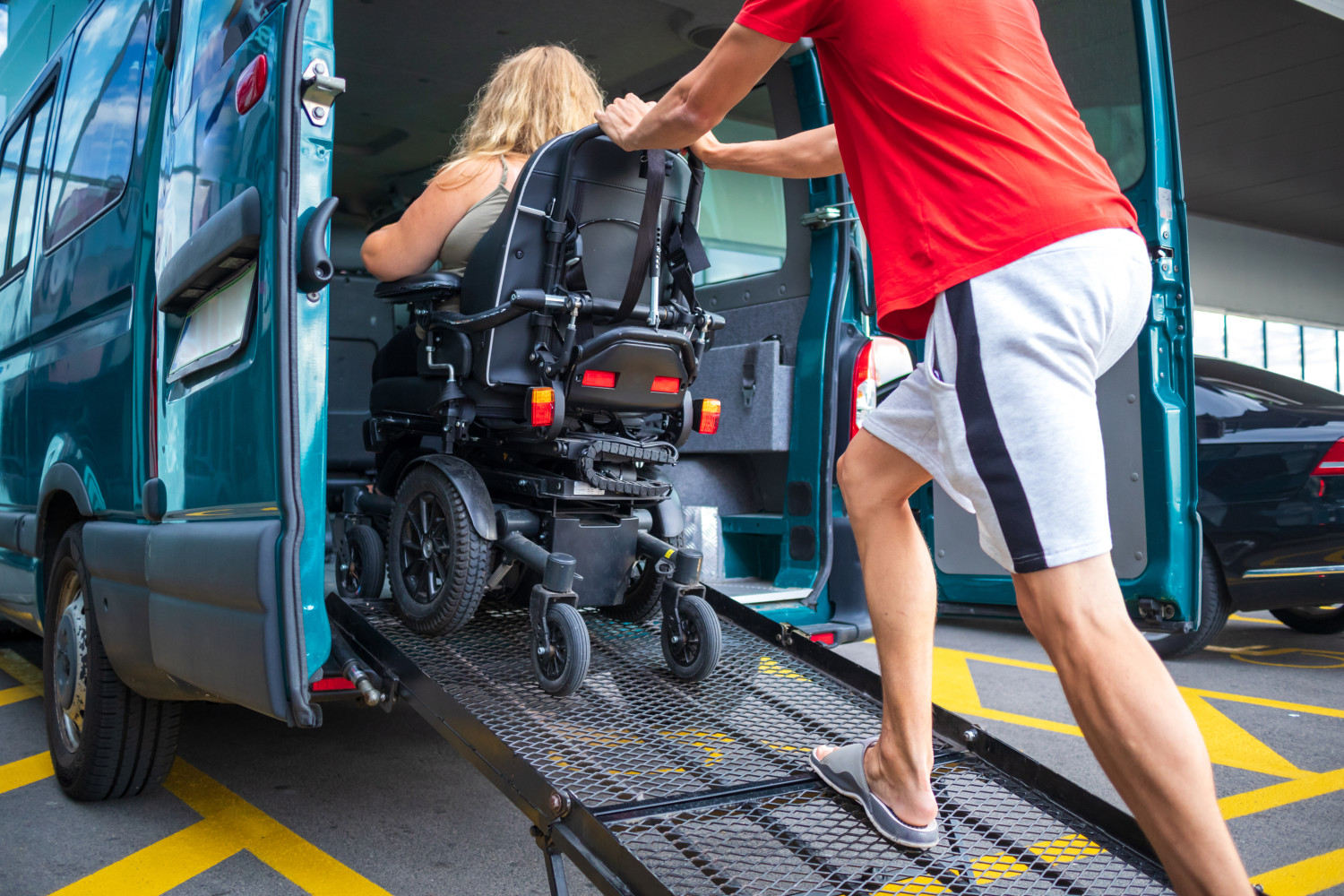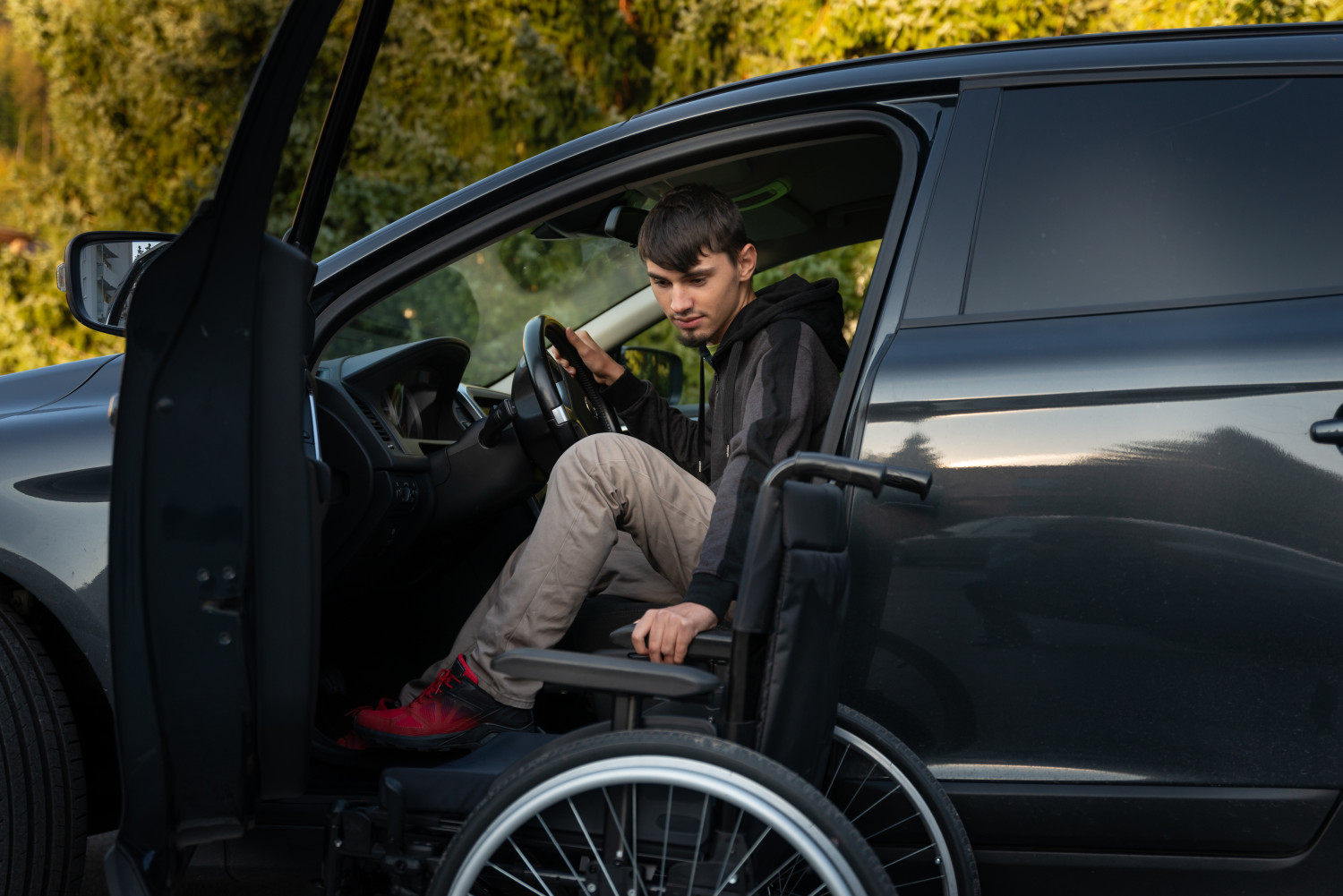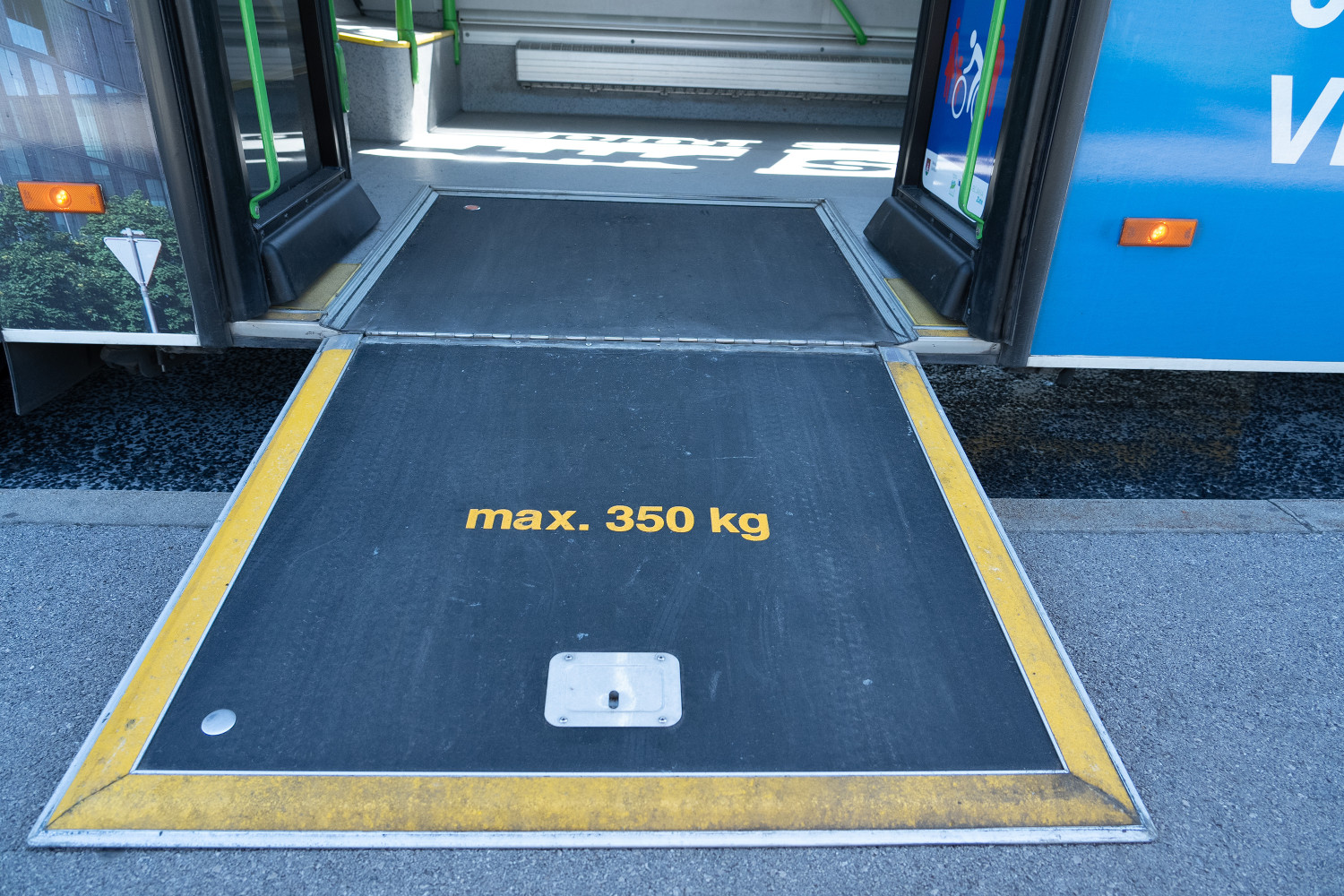A Guide To Disability Transport Services
7 November, 2023
While Australia has come a long way in terms of inclusivity and accessibility, if you're living with a disability, you know that something as seemingly straightforward as transportation can still pose significant issues.
Accessibility in the form of transportation is a key component of ensuring that all people can actively participate in daily life activities, including education, employment and social activities.
As a result, we've created this guide that will explore the various disability transport services available in Australia. Our aim is to help you find the transport solutions that are right for you and ensure you can live the most engaged and rewarding life possible.

Understanding the Need
People with disabilities often face unique challenges when it comes to transportation. Physical barriers, lack of accessible infrastructure, and limited public transport options can create significant hurdles to mobility. Recognising these challenges, Australia has implemented various disability transport services to address the specific needs of individuals with diverse abilities.
NDIS Transport Services
Typically, a National Disability Insurance Scheme (NDIS) participant can secure funding for transport assistance when their disability substantially restricts their use of public transport. The transport funding also takes into account available taxi subsidy schemes.
However, NDIS funding does not extend to assistance for caregivers transporting their family member with a disability.
NDIS Funding For Transport
The annual transport allowance provided by the NDIS is determined based on your personal circumstances and the frequency of your work or study commitments.
The NDIS Transport Allowance is categorised into three levels within your plan:
Level 1:
For individuals not engaged in work, study, or day programs but seeking to enhance community access, the NDIS can allocate $1,606 annually for transportation.
Level 2:
If you work or study for less than 15 hours per week or attend day programs, the NDIS offers reimbursement of up to $2,472 per year for transportation.
Level 3:
Individuals engaged in work or study for more than 15 hours per week can receive up to $3,456 in transportation benefits annually.
It's important to note that these funds are specifically designated for payment to an NDIS transport provider responsible for driving you to scheduled activities or appointments with other service providers.
The allowance is not intended to cover additional expenses such as tips to the driver, petrol costs, or any incidental expenses during the journey. Furthermore, it cannot be utilised to remunerate an informal support, such as a family member or friend, for providing transportation services.

Traveling with a Support Worker or Carer
If you need to travel with a support worker or carer, the NDIS can provide funding for this, enabling them to accompany you for community outings. This funding is incorporated into your plan under "Assistance with Social and Community Participation," which is a core support category.
Charges for these trips are calculated at an hourly rate, encompassing both the duration your support worker spends at the outing and the time taken for their travel to and from your residence.

Vehicle Modifications
If your disability requires the use of a specialised or modified vehicle, the NDIS might be able to provide assistance in funding modifications categorised under 'Assistive Technology'. These modifications could include support for:
Entering and exiting the vehicle with or without a wheelchair.
Transporting your wheelchair into or onto the vehicle without the need for lifting.
Ensuring safe transportation while seated in your wheelchair.
Driving the vehicle with specialised controls or other necessary modifications.
Other Government Programs
Taxi Subsidy Schemes
Taxi subsidy schemes are implemented in various states to assist individuals with disabilities in covering the additional costs associated with accessible transportation. These schemes provide eligible users with subsidies or vouchers that can be used when booking accessible taxis or rideshare services.
In NSW, residents with severe and permanent disabilities that hinder the use of public transport may qualify for a taxi subsidy. This subsidy covers 50% of a taxi fare, with a maximum subsidy of $60. Eligible individuals are only required to pay the remaining fare.
Vision Impaired Person's Pass
With a Vision Impaired Person's Pass, you are entitled to complimentary travel on public transport in NSW. Other schemes operate in other states.
Travel for Support Persons
Through the National Companion Card Scheme, your carer or companion can enjoy complimentary travel on public transport when accompanying you. Your fare remains at its standard rate, dependent on your concession status.

Public Transport
Many cities and regions across Australia have made strides in improving the accessibility of public transportation.
For example, in NSW, accessible buses are easily identifiable by the wheelchair symbol displayed on the front. They are equipped with features like lower floors, wide doors, spacious aisles, and an absence of steps in the front half of the bus. Additional amenities include handrails, accessible stop buttons, and prominently visible LED destination signs.
These buses allocate designated areas with foldable seats, specifically designed to accommodate mobility aids like wheelchairs and ride-on scooters. While these spaces are also suitable for prams and strollers, it's important to note that wheelchair users and individuals with limited mobility always have priority. Assistance animals are also permitted on all public transport in NSW.
You can use trip planner apps to plan an accessible trip.
Transport authorities are also working towards ensuring that public transport hubs are accessible, allowing for seamless transitions between different modes of transportation.
Community Transport Services
Community transport services play a vital role in providing personalised transportation solutions for individuals with disabilities, especially in areas where mainstream public transport may be limited. These services often involve door-to-door pick-ups, ensuring that individuals can travel directly from their homes to their desired destinations.
Modified Taxi and Ridesharing Services
The emergence of wheelchair accessible taxis and rideshare services has been a significant step towards inclusivity in transportation. Companies like Uber and Ola, in collaboration with various taxi services, have made efforts to increase the availability of wheelchair accessible vehicles, providing a more flexible and convenient option for people with mobility challenges.
How Focus Care Can Help
Effective and efficient transportation can enhance the independence and well-being of people with disabilities. Support through the NDIS can be a big part of this.
Focus Care is a registered NDIS provider that offers leading home care services, including transportation for people with disabilities.
We treat each client as an individual and our goal is to provide personalised care and support. We will work with you to find the solutions you need and the flexibility and freedom you want.
Want to find out more about our disability support services? Reach out to our fantastic team or read through our list of services.




